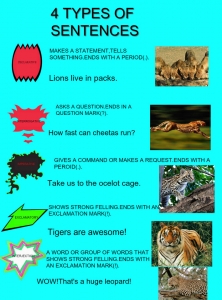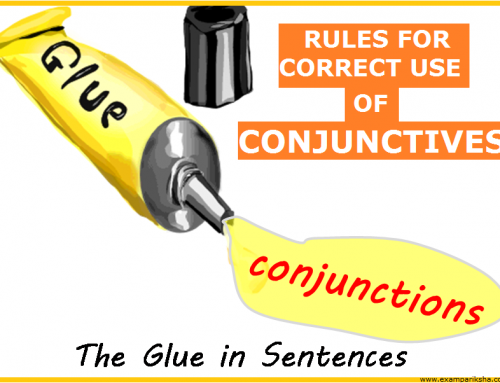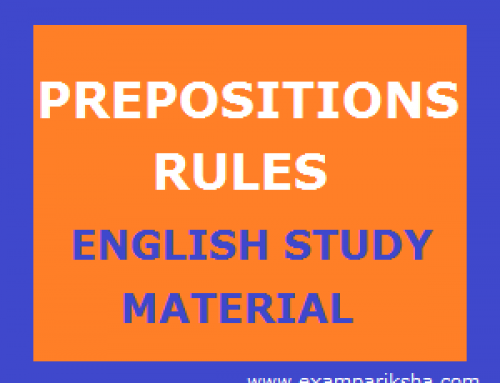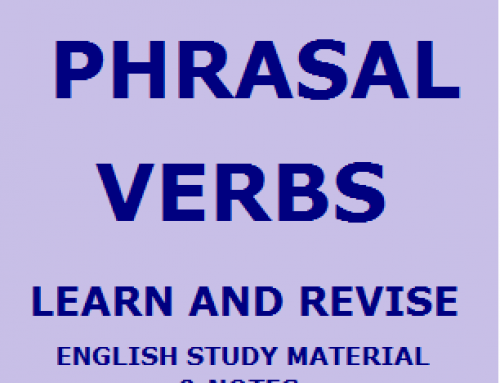Upon reading the following group of words, you would understand some meaning conveyed:-
- An aeroplane flies in the sky.
- The Sun rises in the East.
- Honesty is the best policy.
from the above, we can conclude that a group of words which makes complete meaning is called a sentence.
The formation of sentence causes difference in meaning. Sentences are classified on basis of their uses in English language. To introduce English grammar, it is essential to understand the usefulness of sentences along with their kinds. The types of sentences are described in brief in the following part.
Kinds of sentences:
Let us first discuss the purpose served by different sentences. A sentence is used for following purposes.
- to make a statement
- To ask a question.
- To give a command, request, entreaty or wish
- Express some strong or sudden feeling
The above mentioned purpose of sentences point towards four distinct types of functions performed by sentences. Therefore, sentences can be of following four types:
1. Declarative / Assertive Sentence: That makes statement or assertion.
For instance,
- Radha is a good student.
- Ram is going to New York.
- Shahrukh plays cricket.
2. Interrogative Sentence: these are sentences that asks a question.
For instance,
- Where do you live?
- What did she say?
- Where are the kids?
3. Imperative Sentence: these are sentences that expresses a command or an entreaty.
For instance,
- Mind your own business.
- Please let me dance.
- Be quiet.
4. Exclamatory sentence: these are sentences that expresses strong feeling.
For instance,
- What a fool you are!
- How hot the day is!
- May God help us!
<< read about priority sector lending here>>
General Rules of making sentences:
- Every sentence begins with a Capital letter.
- A full stop is placed at the end of every imperative or declarative sentence.
- A question mark is placed at the end of every Interrogative Sentence.
- An Exclamation mark is placed at the end of Exclamatory sentence.
SUBJECT AND PREDICATE:
Every sentence is composed of two parts. The part of a sentence which talk about the person or the thing about which we are speaking is known as the Subject.
And the part of sentence that talks about the Subject is known as Predicate. For example,
Therefore, a sentence has the following two things
- a name or some person or thing (subject)
- something about that person or thing (predicate)
Usually the subject of the sentence comes first followed by the predicate.
<< Read about list of banking and finance committees here>>
PHRASE AND CLAUSE:
Phrase is that part of sentence which makes sense, but not complete sense. These are a group of words. For instance,
- It was a sunrise of great beauty.
- The Sun rises in the east.
Here, in first example, the highlighted part does convey a meaning but does not makes complete sense. They are phrases.
Clause is that group of words that forms a part of sentence, while containing a subject and a predicate. For instance,
- She has a chain which is made of Silver.
- People who pay their debts are trustworthy.
In the above example, there is a subject in the highlighted part along with a predicate. Therefore, they are considered a clause.
<< Read about powers of Lok Sabha in Indian Polity here>>
<<Click here to read about Special Drawing Rights>>





